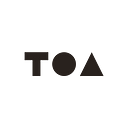07.06.2021 | TOA Klub
Edtech 2.0, Higher education alternative, cohort learning — these aren’t just vacant buzzwords. They’re loud movements and they’re here to stay.
For years, universities and their tangible setting provided a home to the stable institution and the powers that be. However as the Atlantic posted, that stability led to overconfidence, overpricing, and an overreliance on business models tailored to a physical world, which until recently, we didn’t realise was both fragile and interchangeable.
We never needed to replicate the experience, we needed to improve it. Improve accessibility, resources, feedback loops, and collaboration in learning.
Introducing… Cohort-Learning.
What is Cohort Learning, actually?
A cohort is a group of like-minded individuals, stepping through an educational process at the same pace. Cohort-based learning provides students with mentorship, classes, and content. However, in a cohort, much of the learning process and experience is provided by peer-to-peer learning through feedback and encouragement.
Collaborative learning
With the boost of online educational content, we shouldn’t forget that the most important and powerful tool for memory retention is communication.
Research conducted by Josh Bersin, a global industry analyst, revealed that studying alone had a retention rate of 28% when compared to 69% with practice and retrieval. Many other studies have come to similar conclusions, and in particular, high information density learning has a positive outcome when collaboration is present.
Upskilling
The pandemic enforced a disruption and redistribution of office work and learning. It shifted communication online and autonomy over the output of work. This in turn with the rise of EdTech 2.0, popular online courses and MBA’s encouraged, and a shift in job markets showed promise to diversify and upskill.
A study conducted by Deloitte showed that upskilling is imperative for both companies and the workforce to stay relevant. The disruption in the job and tech market has opened up roles in previously undefined areas. For instance the widened skills gap in AI, crypto space, cloud adoption, and cybersecurity.
In Spring 2020 there was an increase of companies providing education for employees and candidates to keep morale high, along with colleges and universities collaborating with companies to provide the content.
The gaps in the job market and knowledge were palpable last year, however now with the increase in courses and the desire to learn, this gap is slowly becoming bridged.
Education revolt and resolve:
Ed + tech = match made in heaven. Socio-economy has hindered education in the past, along with geographical and communicative constraints too. The addition and acceleration of technology, aided by the catalyst of remote working/learning, has aided the transition to the accessible transformation of learning.
According to EdSurge, a journalism initiative provided by the International Society for Technology in Education, US Edech startups raised over $2.2b in venture and private equity capital across 130 deals in 2020, which is a 20% increase from 2019. On a global scale, HolonIQ saw that the investment from VCs has multiplied by x32 in the past decade, from $500m in 2010 to $16.1b in 2020.
If we dissect this investment into sub-categories of learning, the largest investment is funneled into ‘Workforce’, coined as Vocational, Corporate Training, and Professional UpSkilling. This highlights the shift away from higher education and degrees, with only a 16% share of VC deals in this area.
Edtech has provided technology, space, and investment for a shift, but what are the options in this area? ******
The spotlight on MBAs is dwindling, because of the expense that comes with it and the practical approach that’s accessible with other opportunities.
If we now talk about other learning programs; joining an accelerator is an option. However, this doesn’t solve the economic problem of learning. Accelerators are expensive to join, through equity % taken and underlying payments.
Cohort-learning isn’t the answer to education, but it’s a starting fight to be accessible to all at a reasonable value with exceeded results.
Welcome to TOA Klub
We made the pivot to develop a cohort-learning and doing platform. There is an emphasis on the ‘doing’ because we want there to be actionable insight and for our engaged community to be held more accountable.
We have started with only four Klub programs, each with specific outcomes to level up in the field that they choose: Founders, Investors, Co-Creators, Cryptos.
Alongside the expert leaders, mentors, speakers that collaborate on the program, the peer-to-peer aspect is just as important. The program will define and encourage this communication, and provide platforms to facilitate this in the best way possible i.e. matchmaking, communities, and virtual gatherings (that you’ll actually want to attend).
It’s been quite a year…
How did you use your time? Whether you made new habits, focussed on learning how to learn (or unlearn), it’s always harder alone. Join a community and invest in what matters — that’s what it’s there for. Learn more about Klub here.
